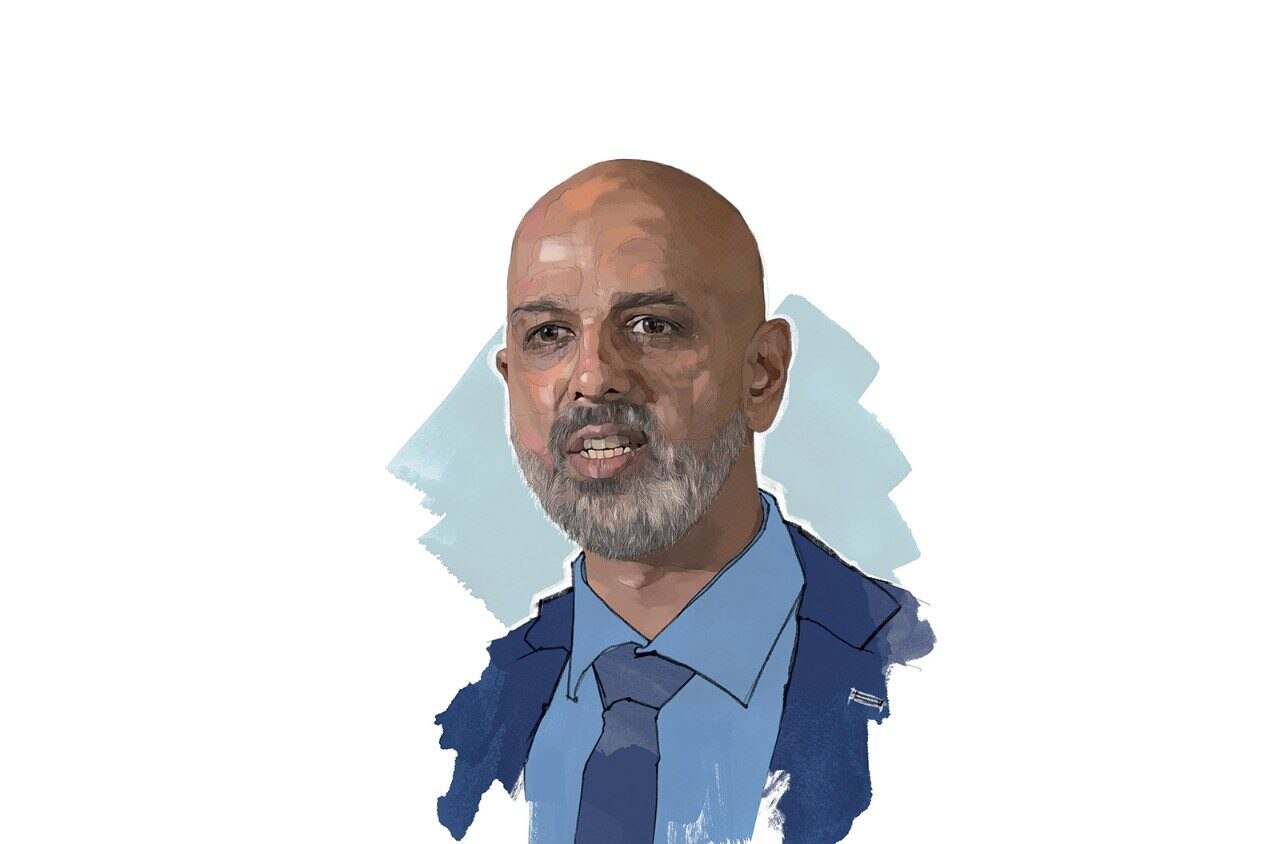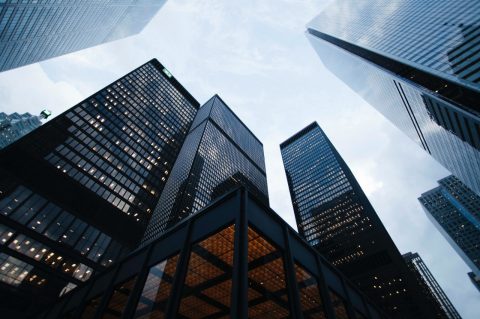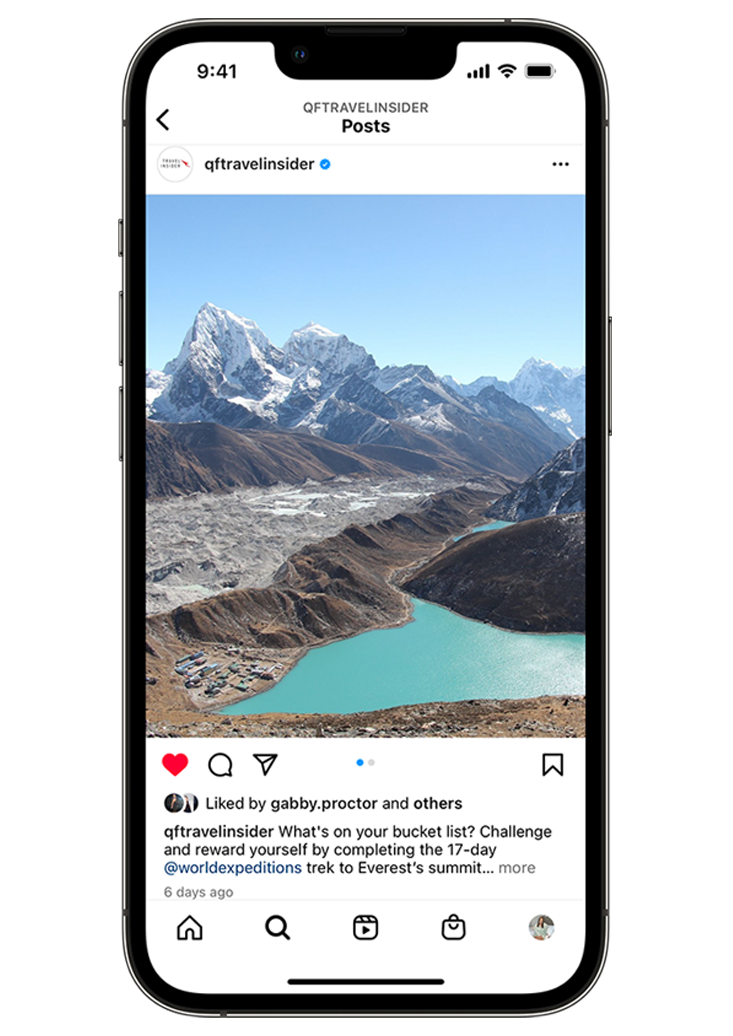Giridharan Sivaraman on Why Leaders Should Be Brave and Do More

Australia’s race discrimination commissioner Giridharan Sivaraman has a challenge for all leaders – be brave and do more.
Current role: Race discrimination commissioner, Australian Human Rights Commission
Tenure: 17 months
Previous roles: Non-executive director, Multicultural Australia; employment, discrimination and industrial law principal, Maurice Blackburn Lawyers; lawyer, DibbsBarker
How do you define good leadership?
It has to be selfless. It’s got to be about the people, the organisation you’re leading and the impact of your actions on those immediately around you as well as those more broadly around you, in the community. Your actions are like dropping a stone in a pond and creating ripples that will affect people.
You’ve got three-and-a-half years left in your term. Does that time limit increase the sense of urgency?
Absolutely. I feel like every day is a day that can’t be wasted. I don’t want to have any gas left in the tank when I’m done or miss any opportunities. Knowing that there’s a finite time to try and achieve things and make a difference is something I think about all the time. It’s very motivational.
It’s been five years since the Black Lives Matter movement really gained traction but it feels like we’re going backwards when it comes to combating racism, doesn’t it?
Sadly, yes. There was a moment in time when it seemed that significant change was coming for the good. And then it felt like the pendulum swung back and it swung back really hard. Unfortunately the last few years have shown that when we have ruptures in our society, interpersonal racism pours out. The real question we have to ask ourselves is what is wrong with our structures? They’re failing us.
Are you an optimist?
Always. You have to be. And I see kindness all the time, often from people who have been treated terribly, like our Aboriginal and Torres Strait Islander brothers and sisters. They extend extraordinary grace to the rest of us and that calls for optimism.
Australia considers itself a multicultural country yet we’re grappling with these issues. It’s such a dichotomy, isn’t it?
I was displaced by civil war so I’m truly appreciative of the opportunities I’ve had in Australia. I grew up in a Tamil, vegetarian, teetotaller, Hindu household. My admission ceremony – to become a lawyer in the NSW Supreme Court – was one of the proudest days of my life. But I had a choice of taking an oath on a Bible or a secular affirmation – there was no room for Hindu beliefs there. I let go of my mother tongue. It’s a beautiful language of literature and poetry but has no place in the law. I didn’t want to sound different. The law doesn’t reward difference; it rewards conformity. The point is that I am the multicultural success story, in many ways, but the things that made me different – my language, my religion, my cultural habits – didn’t help me succeed. They were detriments to my success. They were things I had to let go of or practice in the shadows to succeed.
Has that helped to make you a better leader?
Yes, absolutely. As a leader, you can be curious of others but in a genuine way. Not in a way where one day a year you get people to bring food from their country of origin and taste and go, “It’s fantastic. Look at me embracing diversity.” It’s about being curious as to what you can learn from someone else. What can I learn that might benefit my organisation, might benefit my leadership style?
You’ve said that we need our leaders in politics, society and business to be brave. What do they need to do?
Don’t put all of the obligation to bring about change on the victims of racism. You’re asking too much. But at the same time, don’t impose solutions without consulting with the victims of racism. That’s a common thing and it’s disempowering and often leads to bad outcomes. What you need to do is lend your support, your resources and your imprimatur, while at the same time co-designing and giving genuine authority and decision-making capability to the victims of racism. I recently gave a speech at an event at the Department of Infrastructure, which was organised by a First Nations group. Sitting in the front row was Jim Betts, who’s the secretary of the department and he’s a white guy. It was hugely symbolic that he was up the front and showing he was interested. He let other people ask questions and only spoke at the end, to talk about being committed to change. He nailed that.
What are your thoughts on diversity and inclusion programs? Are they valuable?
They’re a start but they’re not the answer. A D&I program is usually just about getting someone in the door and then you can tick a box. It’s not about all the steps in the employment journey, where racism manifests in a structural way. Are you actually recognising that person’s qualification properly, particularly if they’re from overseas? What’s the onboarding experience like? Many of us are being introduced by our race rather than our skillset. Are they culturally safe in the workplace? What are your notions of leadership? Are they culturally broad? Do you have safe mechanisms for reporting complaints about racism? How is performance managed? Is there a safe place to pray within the organisation? These are all things that can be completely omitted by a D&I program.
You’ve said that racism is estimated to cost the Australian economy $37 billion each year…
That’s research that was commissioned by two pre-eminent academics at Deakin University. They looked at every aspect of our lives across the economy, from health and education to justice and workplaces. If people are leaving the workforce, if they’re not progressing, what does that cost? If you have incidents of bullying and harassment, time off work, what does that cost? There’s plenty of data that shows racism makes people sick – that has a direct cost. If you want to talk bottom line, racism is diminishing the productivity of your workforce and it’s making some people unsafe. If you improve productivity and safety, you are unquestionably improving your bottom line. Less time off work, more production. There’s a very strong monetary argument to fighting racism.
Why do you think people don’t challenge racism? Is it fear?
In my experience, the person who calls out racism tends to get attacked far more than the perpetrator of the racism. It’s daunting. Why would I stick my head out when I’ll probably get kicked? It’s better to just stay quiet and play the game, even if it means I don’t get as far as I should.
You knew that this role would come with a side of criticism. Have you been shocked by how vehement it has been?
Yeah. If I’m going to be honest, I’m getting a bit more used to it but I was shocked by the amount of racism directed towards me on X [formerly Twitter]. In terms of media scrutiny, I think some of it has crossed the line and is actually racist. It’s intended to demean, I think, and to get particular audiences incited. I knew that talking about race would always be challenging but I guess any illusions I had were dispelled. That’s okay, I’ll keep doing it. I’m still here.
How do you look after yourself when you’re feeling under attack like that?
It’s hard. I have a very supportive family. My dad is an old-school migrant, not one to give praise, but he said to me, “I’m proud of you, son.” So I must be doing something right.
As a leader, how do you deal with the stress? I understand you meditate.
Not as often as I should! I remember talking to a friend and he told me that he just compartmentalises. That works for him but for me, compartmentalising is not effective because you need to feel it. With the work I’m doing, you can’t separate yourself from the pain – it’s what motivates you. People who expose their vulnerability are sometimes seen as weak but when I’ve done it, I’ve had people come to me and say, “That’s the thing that made me want to listen to you – you were upfront about being impacted by the work you’re doing, about not being perfect and about the challenges that you face personally and professionally.” It’s a harder road to walk but I think it will ultimately be the more rewarding one.
You’ve said you doubt yourself all the time.
All the time.
How does that manifest itself? Is it impostor syndrome?
You think, “I don’t really fit in here.” I was the first person of colour to be a partner in the law firm where I used to work. It’s hardly surprising that you sometimes feel like an impostor when nobody looks like you. And this work is hard. You are constantly thinking, “Am I helping people enough? Am I making a difference?”
As a leader, what is your absolute strength?
I’m a very good communicator. It doesn’t matter who the audience is – whether it’s a room full of C-suite executives or unionists or kids. Effective communication is not thinking about sounding like the smartest person in the room but thinking about whether you’re being understood.
And what about your biggest gap?
Sometimes I think everything can be achieved. It can be exhausting for others if there’s another idea that’s not going to work so you have to curb your enthusiasm on occasion.
What sort of networker are you?
I’m actually pretty good at it. I just think that people are fascinating. I met a woman from the Territory yesterday who grew up on a cattle station. That’s really interesting, I’ve never met anyone who grew up on a cattle station – tell me more! Networking is easy if you’re interested in people. If you’re just interested in yourself and gaining connections for your own benefit, I think it would be a real chore.
You were a lawyer for more than 20 years. How do you think your legal background helped you prepare for this role?
It’s that capacity to absorb lots of knowledge, organise it quickly in your mind, come up with solutions and communicate effectively. You’re also managing high stakes as a lawyer – law is so binary; it’s all or nothing when you run a case. A person puts their heart into the hands of their lawyer. You don’t carry that lightly. That’s a good skill for a CEO, to be able to carry the expectations of an organisation.
What’s the one piece of advice you’d give a brand-new CEO?
Listen to the people around you. Listen and learn. If you come in thinking, “I know how everything’s going to work; it’s my way or the highway”, you’ll either fail or just piss a lot of people off. How do you build trust? Not by talking but by listening.
On the fly
Personal motto
Act with integrity; act with compassion.
Email approach
Way too cluttered! Thank god I have a brilliant EA – otherwise I’d be lost. I’m really bad at organising emails.
Motivation tactic
Step back and think about the greater good that we can achieve.
Productivity hack
Leave your mobile phone outside the office.
Rule you don’t break
If you commit to something, see it through. The quickest way to break someone’s trust is to not do what you say you will do.
Favourite piece of advice
When I was a teenager, I mangled the family car and tried to tell my dad it wasn’t me. He just looked at me and said, “No, you did that.” And then he said, “Just remember, it can take years and years and years to build up your reputation and you can destroy it in one sentence.” And that’s stuck with me forever.



